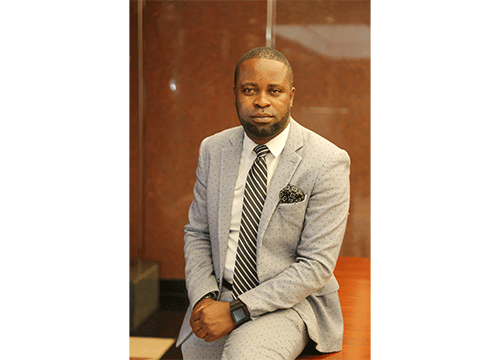Elvis Muraranganda
According to the theoretical epigram Murphy’s Law, ‘anything that can, will go wrong’, and if subtly dissevered, ‘if we think of something bad all the time, it is bound to happen’. However, the latter understanding of this globe-fame adage seems to have taken precedence in our interpretation of national tidings from Citizen 1.
It is indubitably evident that as a nation, we seemingly and deliberately so position ourselves to mine and fish for convenient phrases whenever Citizen 1 takes the podium, in order for us to continue with our ever-failing attempt to discredit and humiliate the person and character of the Head of State, especially in the midst of national crises.
Although we are in agreement with William Shakespeare’s King Henry IV’s metaphor, ‘heavy is the head that wears the crown’, we must reject the now-orthodox notion that for President Hage Geingob, it should and must be heavier, at any cost, even falsehood.
While not allowing nostalgia to dread us of our past actions, let me confine my writing to the latest spells of misinterpretation and clandestine recasting of President Geingob’s rhetoric during the official opening of the deliberative Cabinet meeting for the year 2023.
We find ourselves in a situation where President Geingob’s remarks on the state of education in the country at that meeting are being wrongly misinterpreted to mean that the President instructed teachers to take axes and pickaxes to make their own structures, or that the Head of State was not aware of learners being taught under trees.
Let us first take a measured catechizing of President Geingob’s ability and capacity, most especially past undertakings in the education sector in order to qualify that against our interpretation of the remarks made during the 2023 opening of Cabinet.
Lest we forget, President Geingob himself took on the teaching profession in the early 1960s in Tsumeb, during an era when it was difficult to do so. As an educationalist during the harsh Bantu Education period, he was exposed to ensuring that every child under his wing gets the education they need in order for them to position themselves for a free Namibia, at any cost.
Furthermore, in the mid-1970s, he led a strong team of willing Namibians to set up the United Nations Institute for Namibia in a foreign country, whose primary function was to train Namibians who could take over the civil service of the country upon independence.
Having experienced the hardship of educating Namibians at different levels, especially with limited resources, President Geingob is no newcomer to the challenges facing the education sector, and has on numerous occasions publicly spoken out against these problems, called for reforms, and is leading the conversation on how to best fix this national crisis.
As a leader, President Geingob ensured that the education sector remains the highest recipient of the national budget, and has promised the construction of more classrooms, in partnership with the August 26 Company.
A Google search for those who are not lethargic will produce clear headlines such as ‘Geingob unhappy with how Namibian children are educated’ – Namibian newspaper; ‘Teachers create presidents – Geingob’ – Namibian newspaper; ‘Geingob calls for revision of education curriculum’ – The Brief; ‘President Hage Geingob honours teachers – NBC and ‘Geingob opens second national education conference’ – Namibian Digest.
In May this year, President Geingob is set to receive an award from a continental teaching body for having demonstrated extraordinary commitment to the upliftment of the teaching profession in Africa. According to the body, this arises from the evidence within the teaching profession in Namibia, and a decade of the country’s frontal role in the promotion of free and equitable education.
All of the above shows the level of commitment from President Geingob towards the improved and effective education of the Namibian child, and it is a travesty, at least in the face of all of the above, to create a belief that the President is detached from the challenges in the sector, or aloof to the plight of the learners and teachers across the country.
When it comes to the performance and status of the education sector, an efficient IQ-bearer would agree that there is no way that a passionate educationalist like President Geingob will make insensitive innuendos, as being construed in the public opinion courts.
It then leads us to the understanding that the President was exclaiming disbelief that despite the huge treasury provisions to this sector, we are still experiencing the status quo, and that education is a combined responsibility and all in the triangle should put shoulders to the wheel. He related a discussion he had with a specific teacher, complaining to him that he was cooking for children in the open, whereby he advised the teacher to instead build a makeshift shelter which would be a quick and cost-effective method to ensure shelter while waiting on government to build them a proper kitchen.
This, in a way, the President indicated that while we wait on Government to act, let us as communities, parents and teachers help mitigate any disturbance to the teaching calendar.
* Mr. Elvis Muraranganda is an alumni of the China-Africa Press Centre fellowship programme, a media personality with over 13 years’ experience and a communications consultant. end



